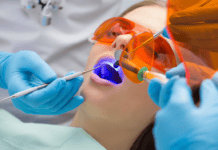Editor’s Note: This article is authored by a hygienist who lives and is licensed in Canada. Some terms used may differ from what U.S. hygienists may use.
As a former dentist in Pakistan, I was really excited to start my career as a dental hygienist in Canada. I completed my first full year of professional practice as a registered dental hygienist in November 2024. While my journey has been filled with positive milestones, it has not been without setbacks and negative experiences.
When I graduated from the dental hygiene program in Canada, I was unsure of my goals. However, each experience, positive or negative, shaped my understanding of what I truly wanted to achieve in this career.
I began by creating a professional resume and applying to hygiene positions on some commonly used job application websites. After various interviews, I was selected to work part-time in multiple offices on different days.
However, during my first six months at one of the offices, I slowly learned exactly where I did not belong.
The Not-So Dream Job
Reflecting on the positives first, I had amazing team members, and we all quickly became good friends. I learned the valuable skill of time management, a challenge that dental hygienists, both new and experienced, often face. In the beginning, I was allowed appropriate time to finish client care, which helped me build efficiency in providing quality care. I was also trained in new technology, such as intraoral scanning, which sparked an interest in learning more about orthodontic procedures.
However, the experience was far from ideal. I was forced to work for 10 to 12 hours without breaks. Despite repeated requests, I was not allowed appropriate time to eat my meals or take necessary breaks.
In addition, over the next few weeks, patients were squeezed into my schedule without sufficient time to provide optimal care, as the office prioritized quantity over quality. Furthermore, despite the condensed and back-to-back appointments, I was also expected to help with sterilization and intraoral scanning for the dentist.
The dentist/owner didn’t seem to prioritize patient care based on their needs and explicitly instructed staff to talk patients into unnecessary and expensive procedures to increase revenue. I tried to communicate my discomfort with these unethical practices, but my concerns went unheard.
To make matters worse, I was not paid on time, and my compensation was not accurately calculated, resulting in underpayment. I had to address the issue with my employer multiple times before it was corrected.
I also noticed that some dental materials were expired. When I communicated this to the office manager, they initially brushed it off and only ordered new supplies when other team members also noticed.
After several weeks of unsuccessfully trying to work with the owner to address these issues, I decided to resign and look for another practice that was more aligned with my values.
Lessons Learned the Not-So-Easy Way
The experience at this office taught me many important lessons, including how to keep track of your working hours to ensure your pay is calculated correctly. I strongly recommend reading the Employment Standards Act of your province or territory (or the United States Fair Labor Standards Act and state labor laws). I learned that every employee is entitled to take a break to eat meals, use the bathroom, and attend to personal needs. The laws also clarify your rights as an employee, including how to calculate your wages, statutory holiday pay, vacation entitlement, and more.
Additionally, I became acutely aware of the importance of checking the equipment and materials at the beginning of the shift. I also took the time to understand the indications, contraindications, and post-operative care for all the dental materials I use. After all, as a clinician, our client’s safety is our responsibility.
Most importantly, I learned to advocate for myself and not to be pressured into doing what went against professional standards or my values. I learned the importance of comprehensive documentation to ensure that, if any issue arose in the future regarding a client’s care, there was documented evidence to justify the decisions.
I also went a step further and had a telephone conversation with the practice advisor of my college, who guided me through these challenges. Above all, this experience taught me to respect myself, my identity, and my profession and to stand firm in my values.
Temporary Chaos
After going through this for a few months, I took some time off to regroup while continuing with one part-time job and some temporary shifts to fill my schedule. Eventually, I began searching for a permanent part-time position. When I secured permanent roles at three different offices with my days well-distributed, I finally felt that my schedule was stable enough to plan my life around. It took me six months to reach this point!
Looking back, I realize that taking the time to regroup while periodically working temporary shifts helped me clarify what I truly wanted in a permanent position. However, as weeks turned into months, I found myself growing tired of the constantly changing environment.
Temping can pay more than being a permanent hygienist at an office, but it also comes with added challenges and stress. The challenges can include, for example, finding the correct location when going to a new place for the first time, quickly adapting to the practice management software and office workflow, and performing at the same level and efficiency as a permanent hygienist. This was one of the reasons I chose to spend some time and effort finding offices to settle in for the long term.
My original plan of working at no more than two offices evolved into working for three on different days. This arrangement has worked out well, as each office offers unique learning opportunities.
Triple Rinse, Triple Fun
Across the different offices I have worked at so far, one of them has stood out as particularly transformative. I started as a part-time hygienist, working just one day a week.
I encountered many clients with complex periodontal issues. At that time, I was fresh out of school and felt slightly under-prepared for these challenges. Fortunately, my employer, the principal dentist, was extremely patient with me and committed to helping me learn. He provided consistent feedback after each client interaction, allowing me to refine my skills and build my confidence.
This experience, in particular, highlighted the importance of mentorship, especially when you are first starting. While it is possible to rely on textbooks and the industry’s regulatory bodies for current literature and guidelines, nothing compares to the invaluable guidance of a trusted mentor.
All my current employers are committed to using cutting-edge technology and ensuring that the hygienists have the tools and training to perform at their best. I feel fortunate enough to work in different offices, which has allowed me to gain early exposure to technology and equipment like intraoral scanners and air polishing. In one of my offices, I will soon begin training as an orthodontic hygienist, which will further broaden my experience. If I had worked in only one office, my exposure to diverse technologies and specialties may have been limited.
My growth as a clinician has also been supported by my team members. The dental assistants, in particular, have played a pivotal role in my development as a team player. From day one, they took time to walk me through infection prevention and control (IPAC) procedures, restocking, navigating dental software, obtaining radiographs, and much more. They understood I was new to the field and patiently taught me skills without ever being judgemental. And as I have become proficient, I am finding myself contributing more and more to the success of the team as a whole.
Furthermore, I also embraced the opportunity to learn office management skills. I took on some administration tasks in my free time to help run the practice more smoothly. Recently, I have begun learning how dental insurance works, allowing me to collaborate more effectively with clients to help them navigate the complexities of their benefits and make informed decisions about the care they need.
In Closing
I would highly recommend that hygienists who are just starting make a habit of setting personal goals for continuous learning on a regular basis. Whether it’s improving organizational skills, mastering the art of ordering supplies, understanding administrative tasks, cracking the dental codes, becoming the go-to person for IPAC, or anything else.
For example, my goals for this quarter are to gain a deeper understanding of insurance processes and develop tentative long-term care plans for my clients. These goals not only enhance your professional development but also can help make you a more valuable and well-rounded team member.
The more you invest in your growth, the less likely you are to get stuck in the “newbie” phase, and the better prepared you will be for when those “oops” moments occur.
Before you leave, check out the Today’s RDH self-study CE courses. All courses are peer-reviewed and non-sponsored to focus solely on high-quality education. Click here now.











